Atlantic City's Warning for a Nation at the Crossroads
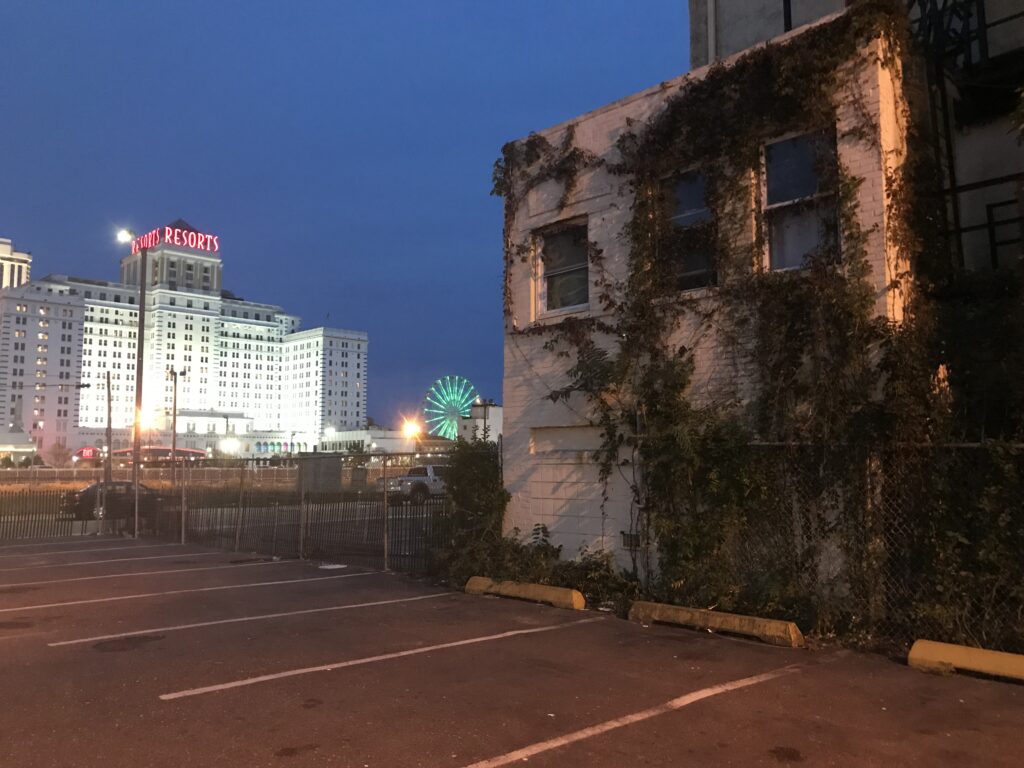

With just several days to go before the general election, the nation is amidst another wave of a once-in-a-century deadly pandemic, with a president who has refused to commit to a peaceful transition of power, even if his opponent gets more votes.
Just how did New Jersey go from being the “Crossroads of the American Revolution” to being implicated in our republic’s disease-ridden authoritarian dead-end?
Was our current national misery all presaged by Trump’s spectacular collapse in Atlantic City, which is so evident years later in the hulking ruin that is the vacant Trump Plaza at the heart of the iconic boardwalk?
If Donald Trump tries to subvert democracy, will New Jersey—the one that Lincoln Steffens described as “the traitor state” for its embrace of corporate trusts—be implicated for the way the state’s media and political elites indulged him?
Boom-Bust Boom
While we don’t know for sure just what will happen in Washington on January 20th, we do know what’s scheduled nine days later when Trump’s original casino The Plaza is slated for implosion...
Atlantic City Mayor Marty Small is auctioning off for charity the chance to be the person to provide the
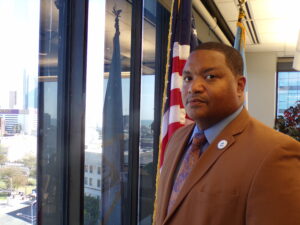
finger to push the button that brings down the rotting structure that he says represents the devastation wrought on their community by Trump’s boom-and-bust.
“Donald Trump has an atrocious history here in Atlantic City,” said Small during a phone interview. “His properties started out as gems, and he let them fall into disrepair for the sake of making a dollar. He hurt so many little mom-and-pop shops and small businesses.”
Small continued, “His arrogance on the national stage, where he blatantly says he took advantage of the bankruptcy laws and made a lot of money in Atlantic City, and then just got out. I am just glad the American people are seeing who he truly is and that he only cares about himself. I look forward to Jan. 29th.”
Even now, Small says Trump’s failure as president to coordinate a national pandemic response to a virus that has a disproportionate health impact on a community like Atlantic City, where two-thirds of the population are people of color.
Trump Runs the Table
Trump was awarded his first casino license in March 1982; and by 1996, when he opened Trump’s World’s Fair, he would have four casinos and a track record for getting his way with New Jersey’s Casino Control Commission, the Casino Reinvestment Development Authority, and the Division of Gaming Enforcement.
To find the roots of Trump’s Atlantic City ascension in the 1980s, we first must look back to 1973, when

Brendan Byrne won the governorship in the wave of Watergate voter anger, triggered by the abuses of the Nixon crew (which included dirty-trickster, Roger Stone). And it didn’t hurt that Byrne’s name was mentioned on law enforcement surveillance tapes of the mafia, when the hard-charging, former Essex County prosecutor was described as "the man the mob couldn't buy.”
As the Washington Post recounted in Governor Byrne’s obituary, he “cultivated a reputation as a no-nonsense, incorruptible public servant who put the interests of his state before himself….after an organized-crime figure he prosecuted in the 1960s, Simone ‘Sam the Plumber’ DeCavalcante, called him a ‘Boy Scout’ and added, ‘You can't get to him. He can't be bought.’”
Perhaps it is hard to imagine now, in the post-“Sopranos” craze and our social-media obsession with all things Jersey [housewife?] mobster as a source of state pride, just how that mob taint knee-capped the state’s self-image in the 1950s and 1960s.
A two-part series that ran in the September editions of LIFE Magazine in 1967, headlined “The Brazen Empire of Organized Crime,” captured New Jersey as a place that the Cosa Nostra had corrupted at every level.
According to LIFE Magazine’s reporting, the mafia owned politicians, judges, and even a high-ranking New Jersey State Trooper who was getting $7,000 a month in bribes.
Governor Byrne, who had initially run on a commitment not to raise taxes, introduced and enacted the state’s first income tax after the state’s highest court ruled that New Jersey’s reliance on the local property tax to fund education was unconstitutional.
In 1977, when he signed the law that legalized gambling in Atlantic City, he said he wanted to ensure that the resort not fall into the "filthy hands” of organized crime. And so, under the Byrne administration, the Casino Control Commission was created to do just that.
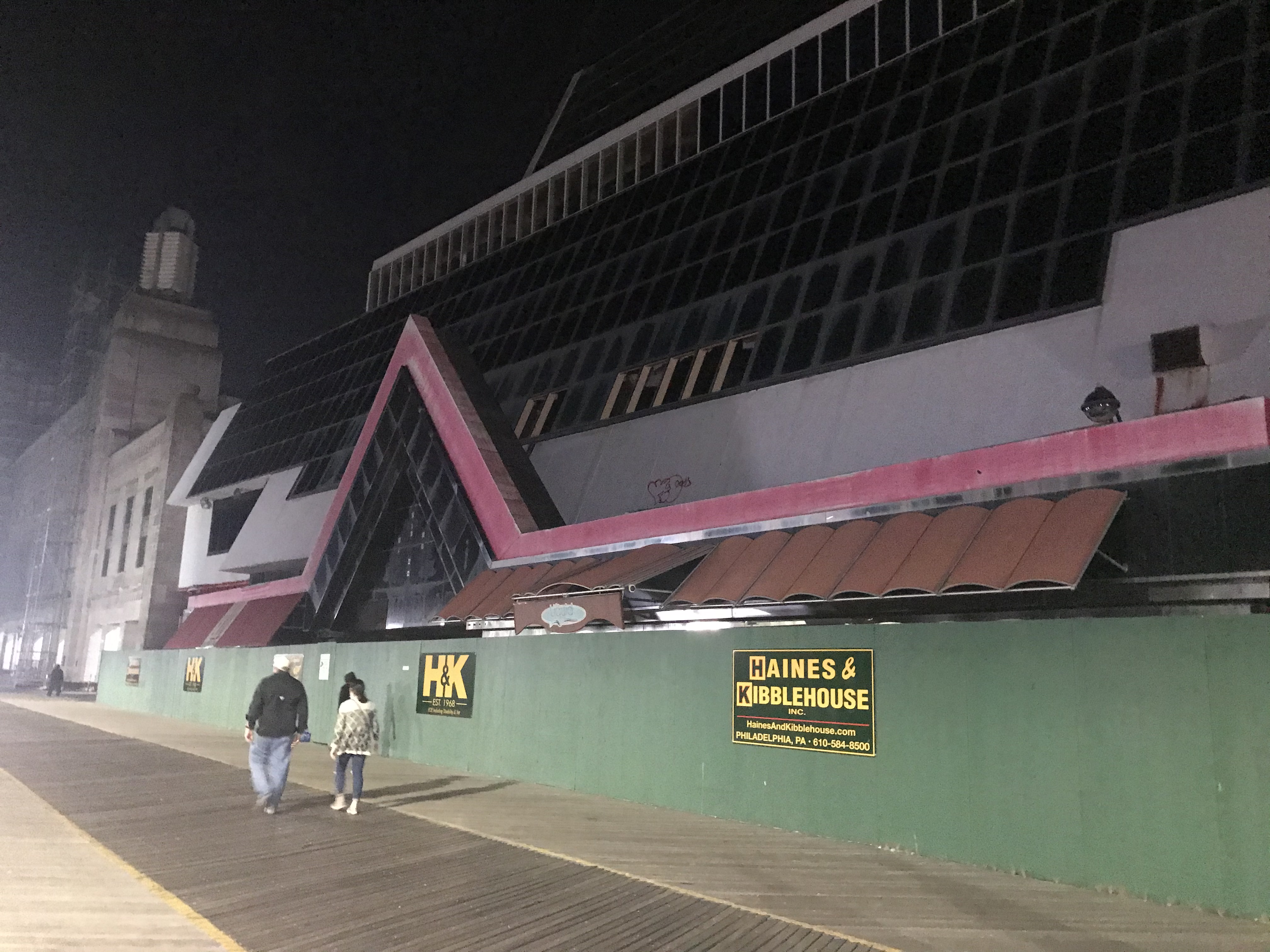
Gaming the System
But as former Philadelphia Inquirer investigative journalist, David Cay Johnston, noted in his seminal book, Temple of Chance: How America Inc. Bought Out Murder Inc. to Win Control of the Casino Business, as New Jersey was building its regulatory fortress against the mob, the gaming industry was undergoing a radical transformation—from being the dominion of the mafia to that of Wall Street.
“The individual gamblers and their underworld bankers who built Las Vegas, and who escaped both jail and hitmen, began selling out two decades ago, replaced by a new generation of owners: corporations specializing in the business of risk. In the casino industry, America Inc. bought out Murder Inc.,” wrote Johnston in his 1992 book that was informed by his years covering Atlantic City and the roller-coaster machinations of Donald Trump.
As Trump’s gambling empire grew, which was built on massive debt and on what the New York Times subsequently reported (September 27, 2020) as breathtaking tax avoidance, New Jersey’s elected politicians and gaming regulators saw his continued success as central to the state’s economic development.
As former New York Times reporter, Timothy O’Brien, wrote in his 2005 book, “TrumpNation, The Art of Being the Donald,” while Trump “wasn’t passionate about Atlantic City, the town was certainly passionate about him. Over the years, New Jersey regulators and law enforcement officials had gone out of their way to accommodate the developer, and he used that welcome mat to forge a hammerlock on Atlantic City gambling.”
“Though no one was supposed to own more than three of Atlantic City’s twelve casinos, Donald at one point was permitted to have four (and he purchased a fifth that had closed, so he could have extra hotel rooms on the city’s cramped boardwalk),” writes O’Brien. “Though regulators were supposed to strictly monitor the financial well-being of casinos and their owners, Donald was consistently given extra latitude to work through mounting money woes that left him teetering on the brink of personal bankruptcy.”
Over the years, O’Brien, along with Johnston and the Village Voice’s Wayne Barrett (who died in 2017), wrote extensively about New Jersey’s regulators letting Trump slide on required disclosures of relationships with organized-crime figures and convicted felons, whom they noted should have prevented him from getting a casino license.
All three journalists contrasted how the New Jersey’s Casino Control Commission denied the Hilton chain a gaming license for a hotel that the chain had already built with the way the regulator appeared to enable Trump.
Trump only had his first Atlantic City gaming license for a few years and just owned half of what was then called Harrah’s [Holiday Inn] at Trump Plaza, when, in April 1985, he closed a deal with Barron Hilton to buy the hotelier’s 624-room Atlantic City Hilton Hotel, which had yet to open.
That February, the Casino Control Commission had rejected Hilton’s application for a gaming license, because of his relationship with a Hollywood-based labor lawyer with alleged mafia ties. Hilton denied the charges of any mob links but sold out to Trump.
In the New York Times’ account of the game-changing Hilton transaction, a “John Baron, a vice-president of the Trump Organization” was quoted; although years later it was learned that John Baron was actually a pseudonym Trump used when speaking to the press.
By contrast, in Barrett’s 1992 book, “Trump: The Deals and the Downfall,” he documented that Trump failed to disclose to the CCC his long-time alliance with attorney Roy Cohn, the chief-counsel to Senator Joseph McCarthy, who also represented Carmine Galante and “Fat Tony” Salerno, suspected Mafia chieftains, according to CNBC.
It was Cohn who, in 1972, on behalf of Donald Trump and his father Fred, countersued the US Department of Justice after the federal government sued the Trumps for race-based housing discrimination. Twenty months later, the Trumps reached a settlement which required they take out newspaper ads to inform prospective minority tenants that they were entitled under the law to an equal opportunity to rent a Trump apartment.
In the course of his career, Cohn was indicted four times on corruption charges. He was acquitted three times and the fourth case ended in a mistrial. In 1986, he was disbarred for unethical conduct.
In March 2016, Fast Company published an article entitled, “State Investigative Report on Trump Shows the Complexity of Alleged Mob Ties,” based on their obtaining a 41-page, 1992 investigative report produced by New Jersey’s Division of Gaming Enforcement, which offers a detailed account of the agency’s follow-up on 15 allegations contained in Barrett’s book.
While the article’s subtitle—“NJ Regulators Investigated Allegations and decided not to take further action and Trump may have even helped mob fighter in NYC”— suggests some ambiguity regarding Trump’s mafia links, the primary document they published from the Division of Gaming Enforcement confirms Trump failed to make several disclosures, any one of which could have disqualified him.
“A review of the Division’s report to the [Casino Control] Commission on the background of Donald Trump and Trump Plaza Corporation failed to reveal any background information regarding Roy Cohn,” the DGA report stated.
The investigators noted that, back in 1981, it had on its own flagged Cohn’s defense of the Trumps in their DOJ Racial discrimination housing, but noted Trump “failed to disclose” the litigation.
Similarly, the DGA concluded Trump had failed to disclose litigation involving his employment, in 1980, of 200 undocumented Polish immigrants that, according to the New York Times, “worked in 12-hour shifts, without gloves, hard hats or masks, to demolish the Bonwit Teller building on Fifth Avenue, where the 58-story, golden-hued Trump Tower now stands.”
Trump was accused of cheating the workers out of their pay and shortchanging payments into a union pension fund. He litigated the case until 1998, when he settled it for $1.375 million; but the settlement remained under seal until 2017, when Time Inc. and the Reporters’ Committee for Freedom of the Press prevailed in their 2016 motion to have it unsealed.
Notably, there are the instances where the Casino Control Commission was fully aware that Trump had violated the rules but voted to retroactively sign off on it; as they did in 1991, when they voted 4-0 to allow Fred Trump, Donald Trump's father, “to serve as a source of financing for his son” after his father bought $3.5 million worth of chips at the Trump Castle and never redeemed them, giving the casino a cash infusion.”
O’Brien writes in TrumpNation that as “another big Castle payment approached in December 1990, promising to send Donald into personal and corporate bankruptcy,” his father Fred “flouted state casino regulations” with the multi-million-dollar chip purchase Donald “needed to get past the hump.”
The Casino Control Commission fined Trump’s casino $30,000.
“The regulators came up with easy devices to avoid ever asking questions that would require them to even consider revoking a license,” wrote Johnston in our recent email exchange. “When Trump became financially unstable—which means the state should receive the casinos and appoint a temporary overseer—he threatened to make them look bad for going after a job creator.
Public Service and Private Fortune
Former US Senator Robert Torricelli, whose own political ascendancy from the House of
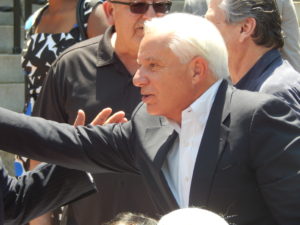
Representatives paralleled Trump’s rise in prominence, said that he and the developer “were social friends” that “spent time together” as Trump “became an important business, economic, and political force in the state.”
In a recent telephone interview, Torricelli believes that Trump actually has deeper political roots here in New Jersey than in his New York, his native state. “I actually think Donald has more political relations in New Jersey than New York. He had political problems in New York because of his real estate development and Ed Koch, primarily.”
Throughout his career, Torricelli was proud to block-and-tackle for Trump and the casino industry, which rewarded his advocacy with campaign donations.
Both Trump and Torricelli were fierce opponents of Native American gaming, arguing that it historically had been infiltrated by the mafia and that it would undermine “taxpaying businessmen” like Trump.
“The Indians don’t have to pay tax,” Trump told a House subcommittee in 1993. “Nobody’s more for the Indians than Donald Trump…You ask about competing. I love to compete … but I like to compete on an equal footing. I’m competing and paying hundreds of millions of dollars in tax.”
In 1993, New Jersey Monthly reported that Torricelli had “emerged as one of Washington’s leading opponents of the spread of Indian casinos” and had “introduced legislation in Congress that will make it impossible for Indian casinos to open in New Jersey, unless the Indians wish to build in Atlantic City”—an unlikely prospect.
According to the magazine, Torricelli argued the tribes “not only enjoy a competitive advantage over the Trumps of the world—tribes are not taxed on the profits from casinos—but also are not subject to the stringent background checks and audits to which Atlantic City casino owners must submit.”
In his 1996 campaign for the US Senate, Torricelli likened his support to gaming to the way politicians from Texas embraced the oil industry. ''It's time in New Jersey that we all understand that the gaming industry, the people who work in the industry and the future of Atlantic City is critical to every person who lives in New Jersey,'' Torricelli told an Atlantic City crowd, the New York Times reported.
In our phone interview, Torricelli said he had no regrets about his support for Trump and his Atlantic City interests over the years. “Donald Trump was a major employer in New Jersey—and enormous investor,” he said. “He made considerable business mistakes, but he also paid salaries that created a middle-class life for tens-, if not hundreds-of-thousands of people in New Jersey for many years.”
The former Senator conceded that New Jersey’s oversight of Trump was too lax.
“Trump became the classic case of too-big-to-fail,” said Torricelli. “His empire was never built on a firm financial ground. He was always problematic and the state always feared his failure and that created leverage [for Trump]…. They allowed him to self-destruct. It would have been a better favor to Donald Trump and the State of New Jersey had the regulations been stricter; and he certainly should not have been permitted to develop excess capacity, which weakened every other casino in Atlantic City.”
Torricelli likened Atlantic City to a “golden cow” that New Jersey took “for everything that it was worth and invested nothing back;” while “other states recognized the opportunity and ended up taking our gaming dollars, and tens-of-thousands of employees suffered, and the New Jersey budget suffered. It was a complete lack of leadership.”
Local Knowledge
From the beginning, Donald Trump had the benefit of his relationships with the Atlantic County McGahns—a family that included Democratic Party powerbrokers who championed bringing casino gambling to Atlantic City and were critical to Trump’s success in laying the foundations for his casino empire.
Patrick “Piano-Wire Paddy” McGahn was a local attorney and Korean War Marine Corps veteran, who helped Trump secure air rights along the crowded boardwalk and acted as Trump’s liaison with local politicians, according to Johnston’s book Temple of Chance.
His brother, Dr. Joseph Leo McGahn, was an obstetrician who, as a Democratic state senator, “paved the way for Atlantic City's gambling industry in the 1970s,” according to his New York Times obituary. Dr. McGahn served two terms in the State Senate, from 1972 to 1978, and “was the principal architect of the legislation that opened the gates for the casino industry, with its aim of economic revival for Atlantic City,” which the newspaper included setting up “the toughest casino regulations in the world.” He was an emergency-room physician at the Atlantic City Medical Center until 1984, after which he became medical director at Resorts International in Atlantic City, retiring in 1989, the newspaper reported.
(Donald McGahn, Trump’s former White House Counsel, was born in Atlantic City and is a nephew of the two McGahn brothers.)
Revolving Door-itis?
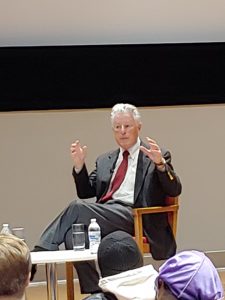
There were also key figures, including a former Governor, a former Atlantic County prosecutor, as well as some of the original state casino regulators, who would all lend their names and prestige to Trump’s enterprise.
In 2005, former Governor Jim Florio joined the board of directors of Trump Entertainment Resorts Inc. [TER], where he served for two years, he confirmed during a recent telephone interview.
The year before, Trump Hotels Casino Resorts [THCR] and its subsidiaries had filed for bankruptcy; and in 2005, “all existing debt and equity securities of THCR were exchanged for new securities of TER, pursuant to the Debtors’ Plan of Reorganization,” according to SEC documents.
Florio said he was approached by two lawyers that worked for Trump to add his name to the roster of directors. He was clear to distinguish that he had not “worked for” Trump, but rather that he joined the board of directors of his publicly-traded company.
“That’s when I learned about him and that’s why nothing that’s happened has surprised me,” Florio said. “He’s a strange man that has all kind of head problems. It was a learning experience, and two years serving on his board taught me about him and a lot about the gaming industry.”
Also serving with Florio on the Trump Entertainment board was Don M. Thomas, who had served as a commissioner and acting chairman on the Casino Reinvestment Development Authority (1985 through 1987) and the Casino Control Commission (1980 through 1984). According to SEC filings, he had previously served on the THCR board, Trump’s earlier corporate entity, since 1995.
Joseph A. Fusco was listed in the same filing as “the Executive Vice President of Government Relations & Regulatory Affairs of each of THCR, THCR Holdings and Trump AC since June 1996, and of TCS from July 1996 until December 2000.” Fusco had previously served as “Atlantic County Prosecutor, a Gubernatorial appointment from April 1981 to July 1985, and as Special Counsel for Licensing for the CCC from the inception of that agency in September 1977 to March 1981,” according to SEC filings.
When asked if he thought New Jersey should have any regrets for facilitating Trump’s global prominence that would pave his way to the Oval Office, the former member of Congress and Governor opined that Trump “did not achieve success in New Jersey.”
Florio said that, based on his first-hand experience with Trump, he “was astounded” Trump became president.
He continued. “He’s a self-promoter, and he would have promoted himself in any respect; and New Jersey paid a price for him coming to New Jersey. Retrospectively, it was not a good move for New Jersey.”
Florio, who served as Governor from 1990 to 1994, after serving in the House of Representatives for eight terms, said New Jersey’s “biggest problem” with its gaming industry was self-inflicted with over saturation when it signed off on a dozen casinos at one time.
“We had a study done when I was Governor that said New Jersey only had room and capacity, at most, for nine casinos,” he said. “The hype just got out of proportion, and therefore they approved all those players to come in without thinking about what the market could sustain. So, in that respect, New Jersey was at fault.”
In retrospect, the most apt phrase to explain Trump’s chapter in Atlantic City would be “regulatory capture,” which the Intelligent Economist defines as:
“a failure of normal government functions in which regulatory agencies become subservient to the industries they are meant to be monitoring and regulating. In these cases, the regulatory bodies end up furthering the (typically economically-motivated) goals and concerns of special interest groups, rather than the public–so the interests of the majority of society are neglected in favor of the wealthy.”
Hopefully, this election will ensure that Atlantic City’s fate is not the nation’s.






Just how long will this October 2020 piece be posted?
Amazing, I hope you will like this also How coronavirus is Changing Candidate Screening.
Media 100% ignores tight TRUMP ties to Mob Dons, Paul Castellano, Tony Salerno, Carmine Galante, Phil Testa, & John Gotti.
Though no one was supposed to own more than three of Atlantic City’s twelve casinos, Donald at one point was permitted to have four (and he purchased a fifth that had closed, so he could have extra hotel rooms on the city’s cramped boardwalk)